Andrew Collins's Blog, page 32
September 9, 2012
Just give ’em whiskey
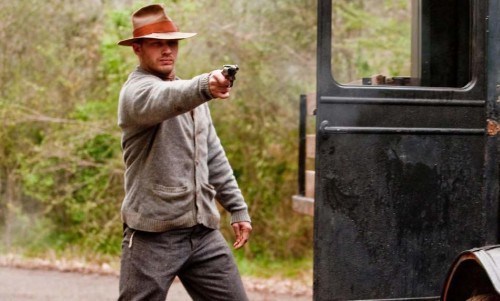
Here’s the proposition: Lawless tells the true tale of the Bondurant brothers, moonshine suppliers in early-30s rural Franklin County, Virginia whose nice little cottage industry takes a turn for the dicey and dangerous when a new G-man comes to town and attempts to clean it up. We all know that Prohibition gave birth to gangsters and, in its attempt to rid the United States of liquor, merely drove it underground, or, in the case of Franklin, up into the mountains. (There’s a shot early on in John Hillcoat’s handsome-looking film of a hillside aflame in the evening sky with whiskey stills pumping out their heady brew, soon to be decanted in jam jars, and swigged with the accompanying sharp intake of breath.) This pivotal era in American history is, unfortunately for Hillcoat and his writer Nick Cave, currently being played out in operatic style by HBO’s Boardwalk Empire – the Blu-Ray of whose second season was, ironically, or cruelly, advertised before Lawless at the Curzon this afternoon. What can the Australian pair add?
Well, Boardwalk is set amid the dandies, whores and brokers of Atlantic City, and concerns the intricate handover of power during temperance. Lawless, based on the book by one of the three brother’s grandsons, is an everyday story of country folk. When a city mobster drives into this one-horse town – Gary Oldman, whose role is a swiz-like cameo – he shoots the shit out of it with a Thompson sub-machine gun. (He will come to have a more significant bearing on the story, however.) Frankly, in Franklin, things are ticking over nicely in the beginning: the jam jars are unloaded from a flatbed truck, money changes hands, the brothers are working it out, and nobody gets hurt, only drunk. It’s only when the city slickers come over the hill that the applecart of entrepreneurial equilibrium is upset.
Sounds intriguing, doesn’t it? If only this promising premise made it past some striking imagery and some violent set-pieces. Tom Hardy, bulked up for Bane, is the central Bondurant, Forrest, a man of thick neck and few words. His dialogue is mostly grunts and varying deliveries of the phrase, “All right.” It’s unnerving, but it gets self-parodic. I was more intrigued by the fuck-up Bondurant, Howard, played by Aussie Jason Clarke (ever see Brotherhood on TV?), but he is sidelined in favour of Shia LaBeouf, the Michael Corleone of the family, Jack, whose “journey” is the film’s. Can he step up to the plate and grow the “balls” his elder brothers mock him for not having?
What has all the makings of a Biblical saga constantly fails to take flight and become epic. Some of the violence is memorable – Forrest’s secret weapon is a knuckle duster; and revenge is always a dish served sadistic in this kind of film – but Jessica Chastain’s ex-exotic dancer from the city has little to do except smoulder, and Guy Pearce as the pantomime villain is so over the top he seems to have stepped off the pages of Sin City (he even looks inked in).
Cave and Hillcoat have a sixth sense for the mythic, as seen in their outback Western The Proposition, and you’ll enjoy gazing upon the almost colourless Lawless and its lovely period detail (one hotel’s battered sign advertises the establishment as “fire-proof”) – and the eagle-eared, if that’s such a thing, will note Cave and Warren Ellis’s old-time bluegrass renditions of modern songs from the Velvets, Link Wray and Beefheart (the latter two sung by Mark Lanegan); an unobtrusive but wily twist on the period fidelity. But all this good doesn’t quite add up to the modern gangster classic it seemed to advertise.
Maybe a fictional story would have hit more notes of drama? Although having said that, the budding romance between LaBeouf and preacher’s daughter Mia Wasikowski was pure Hollywood, and I rather doubt it happened as neatly as that. Hey, maybe it’s Tom Hardy. He’s a striking looking man, and he mumbles as well as anybody from the Actors Studio in the 1950s, but he’s such a solid, immovable-looking rock of a performer, there’s no scope for lightness or surprises. (Imagine Daniel Craig after a few more weeks in the gym, and without the twinkle in his eye.)
Jason Solomons got in below-the-line trouble in the Guardian for spoilers when he reviewed it back in May at Cannes, so I’ll keep off the plot. Needless to say, there’s a lot of shooting. You’re going to have to really want a lot of shooting, and punching, and slitting, if you’re going to get more out of it than a sharp taste at the back of your throat and the occasional intake of breath. I still love Hillcoat’s eye – The Road was colourless, too, but compelling and complete – and perhaps Anthony Lane in the New Yorker is right: he should get on with it and make a war movie.

September 7, 2012
Cowboy reboot
 Bah, ba-bah, ba-bah-ba-ba-baah etc. After encountering a bit of static below the line on Telly Addict last week for admitting that I had never read any Ford Madox Ford and making a jokey “never heard of him” face to camera, for a joke, before reviewing Parade’s End, I thought I’d stick to what I know best this week: new TV programmes mostly based on old TV programmes, rather than literature I haven’t had the good grace to read beforehand. Hence, the return of Dallas, after 21 years, to Channel 5; the return – for its seventh series – to BBC1 of Doctor Who; and the latest from the big tent of niceness in Somerset at The Great British Bake Off on BBC2.
Bah, ba-bah, ba-bah-ba-ba-baah etc. After encountering a bit of static below the line on Telly Addict last week for admitting that I had never read any Ford Madox Ford and making a jokey “never heard of him” face to camera, for a joke, before reviewing Parade’s End, I thought I’d stick to what I know best this week: new TV programmes mostly based on old TV programmes, rather than literature I haven’t had the good grace to read beforehand. Hence, the return of Dallas, after 21 years, to Channel 5; the return – for its seventh series – to BBC1 of Doctor Who; and the latest from the big tent of niceness in Somerset at The Great British Bake Off on BBC2.


Hello, Taylor


I am not contrary by nature. If I go against the grain, or kick against the consensus, it is not through any deep desire to be “different” or to prove myself a “maverick”. But I am about to tell you that I thought two of the biggest critical and commercial Hollywood flops of the year – John Carter and Battleship – were absolutely fine.
John Carter came out in March; a sort of quasi-steampunk sci-fi saga based on a series of books first published before the First World War, it cost a reported $250 million, before marketing, and made around $300 million worldwide. As a result of the shortfall, or writedown, between cost and revenue, and expectation and cold, hard reality, the head of Walt Disney resigned, with the film being blamed for the studio’s Entertainment Division slipping from profit to loss in the first quarter of 2012. It was intended as a trilogy; it may have to be satisfied with being a trilogy of one.
Battleship came out in April and May; a noisy sci-fi maritime war movie apparently based on the Hasbro game of yore, it cost just over $200 million, before marketing, and made around $300 million worldwide. Nobody resigned, but it was considered a major failure all the same. Both films debuted at number one on the US box office, and both films slipped to second place soon after, presumably sunk by word-of-mouth as much as anything, although neither was reviewed kindly by the press and quotes for the posters were thin on the ground.
I caught up with both blockbusters on DVD. This seems apt, as apparent “flops” often make up the shortfall on DVD, where audiences are more likely to take a risk, especially if a film is being viewed by more than one person. And in any case, who cares how well or not a film did at the box office? Citizen Kane was a flop, and that’s pretty well regarded. The only people who care about box office are studio accountants, whose job it is to care. Is the film “any good”?
John Carter was released in 3D, so I can guarantee that would have annoyed me, had I seen it at the cinema. I was better off seeing it in 2D on my telly. Now, let me state this first: I really like Taylor Kitsch, the young star of both films. He found fame on TV as high school heartthrob and underachieving layabout Tim Riggins in Friday Night Lights, which I’m currently catching up with, five years later, thanks to Sky Atlantic. He has movie-star looks, and a movie-star torso, and you can easily see why he was groomed for the big-screen crossover. Although well-paid for both films, I’m sure, I now find myself feeling terribly sorry for him. He was the star of two huge studio disasters in a row – how unlucky is that?
In John Carter, he is John Carter, the Confederate Civil War soldier who winds up on Mars, where he must take his top off and fight an internecine war between two alien races, helped only by his soldiering skills and a new one: that he can jump really high. Director Andrew Stanton, who came direct from the digitopia with laurels on his head after his amazing work on Wall-E, among others, was directing live action for the first time, and was candid enough to admit that it was a learning curve for him, and that he needed a lot of help and patience from those around him. I’m no studio boss, but I would have perhaps given him a smaller, cheaper film to play with for his first go.
Anyway, if you go into John Carter with adjusted expectations, you might be pleasantly surprised. It’s an old-fashioned sci-fi movie, more HG Wells than William Gibson, and family fare; a perfectly serviceable Star Wars-esque caper, with some good CGI creatures and a watchable star turn from Kitsch, who’s like a less complex Keanu Reeves. Reliable, scenery-chewing support comes from Mark Strong, James Purefoy, Dominic West, Samantha Morton (some seen, some in voice only) and there’s some decent spectacle here. (When I say Star Wars, it’s closer to the latter trilogy than the first, but it’s in that desert-planet ballpark, and there’s nothing in it as offensive as Jar-Jar.)
Battleship, meanwhile, is like Transformers meets Tora! Tora! Tora! Although Peter Berg is best known for loose camerawork and naturalistic acting on FNL, here, he’s playing with a very big train set: actual battleships versus extraterrestrial ones – you know the kind: bloody massive, all groaning metal and bass notes, with that electronic whizzing noise every time something new emerges from the metal.
Put it this way, it’s a hundred times better than Pearl Harbor (it’s set on Oahu, Hawaii, among the US Navy fleet), as it’s self-aware and out for a bit of fun. When one character – a US Army amputee actually played by a non-acting US Army amputee for maximum “our boys” points – says something portentous, a nerdy computer guy – played with great humour by Hamish Linklater – says, “Who speaks like that?” It’s full of this kind of self-lacerating dialogue. It’s a film about an alien invasion based on a board game, after all. (I didn’t notice all of the visual parallels that were made between the game and the movie until they were pointed out to me afterwards, but the missiles the aliens fire at the human ships are designed to look like giant, malevolent versions of the plastic pegs used in Battleships. Ha!)
Battleship reminded me of Armageddon, and that’s not faint praise. This time, Kitsch plays a layabout with a more responsible older brother, just like he does in FNL, so he’s on safer ground initially … until we’re expected to believe that he transforms himself into a crew-cut US Navy officer in time for the invasion. There are too many salutes to the brave boys of the services – some real-life Navy veterans play a dramatic role, for instance, and there’s a lot of flags – but overall, it’s a perfectly exciting way to spend two hours.
Oh, and Rihanna’s in it, and she’s alright, too.
I watch a lot of small, inexpensive, often foreign arthouse movies, with no stars in, and modest ambitions, and these are my sustenance and my stimulants. But, you know, The Poseidon Adventure was a blockbuster, and so was Laurence Of Arabia, and it would be snobbish to demean their place in the cinematic firmament. Don’t be put off from renting a “flop”, because successful films are just as likely to be a letdown.
I’m seeing Kitsch in his next film, Oliver Stone’s Savages, next week – which is not a $200 million-budget toy-range blockbuster but a stylised drugs/crime thriller, as I understand it, with less riding on it. I have my fingers crossed for him. He deserves another crack at this. He has clear eyes, he has a full heart, and right now, he can’t seem to get a break.
(Interestingly, my friend Adam Smith of Empire magazine just Tweeted that Peter Berg told him Universal would consider Battleship a “flop” unless it made $1 billion. Those are big numbers.)


September 4, 2012
Is this thing on?

Thunk. Eeeeeeeeeeeeeeeeeeeeeeeeeeeeeee. Sorry, that was the sound of feedback. And this is the look of feedback: I saw the tremendous new movie Berberian Sound Studio yesterday and it’s all about the audio. Not since The Conversation do I remember seeing so much sound on the screen. Writer-director Peter Strickland has, with his second film, created a hymn to magnetic tape, but shaped it as a period thriller that weaves psychological shocks into an everyday story of recording folk.
Strickland wowed the festival circuit in 2009 with his first film, horse-and-cart revenge thriller Katalin Varga, which I watched on DVD during the Olympics. He funded it with inheritance money, having struggled to get his short films seen previously. Though British, I think he lived and taught in Hungary and Katalin Varga is set and shot in Hungarian-speaking Romania. A labour of love, it’s anything but indulgent: spare, slow-moving, modern-yet-ancient and genuinely gripping.
But Berberian Sound Studio is something else entirely.
It’s the 1970s; all browns and more browns. Toby Jones is intuitively cast as Gilderoy, a polite, suburban, mummy’s-boy sound engineer out of water at an Italian dubbing, foley and effects studio. Having seemingly made his reputation recording the sound for travelogues about his native Dorking, he has been hired by an Argento-like Italian horror director and his severe producer to weave his radiophonic magic on their latest witchcraft slasher, The Equestrian Vortex. If all this sounds a little spoofy, it is, with some spot-on blood-red credits for the movie-within-a-movie. It’s a movie about the movies, seeped in nostalgia for a more hands-on, analogue era, when tape spooled and great big, clunky switches were thrown and, in the world of grisly foley, watermelons were hacked up. In the first act, Strickland has plenty of fun with the in-jokes. More seasoned students of Italian giallo cinema will no doubt find even more to enjoy than I did, as, for all the hints of darkness, anxiety and intrigue, it’s OK to snigger along as a marrow is adjudged “too watery” to sound like a witch’s body falling from a tower and splatting on the ground below, and a seasoned thespian stands in the booth making disgusting noises to convey a goblin who is “dangerously aroused.”
It is a dark, ridiculous, eccentric, hermetic world, but an utterly convincing one. Strickland ensures that every footstep on the lino of a sanitised corridor feels real; this film takes tactile to new levels – when a spider gently crawls over Gilderoy’s hand, gently blown free, you half-expect to be able to hear its footsteps too. By turning up the mics, just as Gilderoy does, Strickland accentuates every seemingly insignificant click and crunch and hiss. Close-ups of needles and gauges and call sheets infuse this psychological horror movie about horror movies with love for the world it inhabits. Those around Gilderoy often speak in Italian, so that we know what they’re saying, via subtitles, but he is an alien landscape, his paranoia building.
I won’t go into any story details – even though the trailer, which has been on heavy location at the Curzon for months, gives a lot away – other than to say it’s a claustrophobic experience that very rarely ventures outside of the studio. If you hear footsteps on dried leaves, they are as likely to be footsteps on dried leaves in a pit in the studio as, well, dried leaves on the ground. Gilderoy’s mother’s letters, which Strickland blows up, full-screen, and allows us time to read, offer a glimpse of simple, bucolic Surrey life, and of the shed he usually works in (“room for two people at a time”, he says), and the effect is quite profound, even moving.
If you’re a cinephile, or someone who, like me, loves the 70s, Berberian Sound Studio has been made for you. But it is so much more than a magic carpet ride for valve-freaks. It is frequently terrifying, without ever showing the depraved Italian film that’s being so inventively and mundanely dubbed – it’s a case of what you don’t see.
This is a film that should be seen and heard. It’s not totally conventional, and plays the occasional temporal and narrative trick, but these flourishes are always underpinned by a truly thrilling sense of place. By the end of the film, you’ll feel as if you could find your way around Berberian Sound Studios, from the reception desk where Gilderoy’s plane ticket waits vainly to be reimbursed, to the mixing room where a taciturn, overall-wearing engineer grimly blanks Gilderoy because he interfered with his faders.
For the record, I really think we should give a ripple of applause to the Sound Department, which numbers around 20 people, from ADR recordist Ruben Aguirre Barba and sound consultant Emanuele Carcone to sound re-recording mixer Doug Cooper and Robert Karlsson, who, according to imdb, is the uncredited Dolby sound consultant (what a mysterious man).
Although it’s eerie and sad to see the name of Broadcast singer Trish Keenan, who died last year aged just 42, in the credits, she and James Cargill have supplied a suitably esoteric and period-appropriate soundtrack which stands as a fitting memorial to her. In a film about sound, this is not background music. Broadcast are signed to Warp Records, whose impressive film arm Warp X produced Berberian Sound Studio, with funding from Screen Yorkshire and the old Film Council. One imagines that Peter Strickland will not have to rely on an uncle’s inheritance to make feature films any more. This puts him on the map. And not just a map of Dorking and Box Hill.
Ooh, and if you’re not lucky enough to live near an arthouse cinema – and I appreciate that not everybody is – you can stream Berberian Sound Studio via Curzon On Demand right now, if you can afford £10 a pop. It’s here. (It’s a rich archive, too; Katalin Varga is also there.)


August 31, 2012
Cake Off
 Back on home turf in London again this week, although every day is an International Television Festival in my house. This week’s Telly Addict, created under antiseptic office conditions without the hum of networking and swish of swinging lanyards in the background, covers week three of The Great British Bake Off (my new favourite programme) on BBC2; big post-Olympics drama hitter Parade’s End on BBC2; one-off crime drama Murder on … BBC2; and, on Sky Atlantic (hooray!), A Touch Of Cloth, which was always going to be a toughie to review, coming as it does from the hallowed keys of Charlie Brooker, who, only last Friday, I was genuflecting before. But TV is TV. If you can’t stand the heat, get out of the cauldron.
Back on home turf in London again this week, although every day is an International Television Festival in my house. This week’s Telly Addict, created under antiseptic office conditions without the hum of networking and swish of swinging lanyards in the background, covers week three of The Great British Bake Off (my new favourite programme) on BBC2; big post-Olympics drama hitter Parade’s End on BBC2; one-off crime drama Murder on … BBC2; and, on Sky Atlantic (hooray!), A Touch Of Cloth, which was always going to be a toughie to review, coming as it does from the hallowed keys of Charlie Brooker, who, only last Friday, I was genuflecting before. But TV is TV. If you can’t stand the heat, get out of the cauldron.


Writer’s blog: Week 37

Alright. I haven’t got time to write a daily diary. It’s the hard-bitten truth. I put in a week’s worth last month, but only to ostensibly unblock my writer’s block, which worked, as it happens. It’s something to do with exercising your keyboard fingers and jump-starting your brain. It’s more fun to write, than to write for a job. But when you write for a job and it’s going well, it becomes fun, so that’s always there to fire your turbines.
I wondered if I might get a weekly diary going, though. Just as an exercise. It may well be all about writing, but that’s the nature of the game.
Monday was a Bank Holiday. Because I’d spent half of Saturday working, and the other half traveling back to London from Edinburgh, I allowed myself the Monday off, like ordinary bank employees. Also, I drank a certain amount at a family barbecue on Sunday, with some downtime in mind.
I hit the media ground running on Tuesday, with a 10.30 meeting at the offices of a TV channel which I won’t name for fear of jinxing my livelihood. It was a good meeting, or felt like one, and if I could only live off good meetings, I’d be a rich man, but I can’t. I can only hope that I made a good enough impression, and pitched some good enough ideas, for it to lead down the crooked path to work. (I got lost on the way to the building, and then lost again inside the building. I am like Mr Bean. But Mr Bean gets loads of work, so … )
Above is a picture I took, and Tweeted, at work on Wednesday morning. The accompanying caption was something like, “Oh no! They’ve put me in a writing room that contains Quality Streets! How am I supposed to get any writing done?” It was true. “They” had. And I thought it would make a funny picture. “They” are my management company, Avalon, whose offices are far, far away in West London, otherwise I might exploit them for a luxuriously-appointed writing space more often. (Not all of their offices are luxurious. One they put me in didn’t even have a plug socket. Another was out of range of the company’s own in-house wi-fi.) As it was, I had pencilled in two half-days of intensive writing with my friend Simon Day, which could not be accomplished in the quiet of the British Library, so we went legit and got a room.
But he blew me out, on both days, for perfectly valid reasons. So I made use of the room. The room with the chocolates in. (You might argue that since my management company take a percentage of my earnings, then I am already paying for the Quality Street, ultimately. It is therefore in my interest to eat them. Or not eat them, if you look at it another way.)
I haven’t had a rented office of my own since 2008, when the financial crisis dissuaded me from such profligacy. It doesn’t really matter but here is a picture of me in my last-but-one rented office, which was shit, and leaked rain onto my laptop in 2007, because I stupidly left it there over the weekend. I never let a laptop out of my sight any more.

The British Library has, it is well documented, become my default office since then, and I find it not only vitally useful as a library, but inspiring as a workspace. I’m here right now. In the canteen. Look. I think my hair has grown up since 2007.
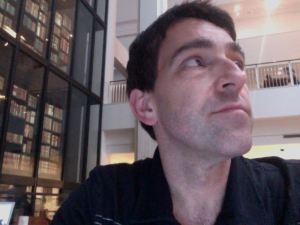
But on Tuesday and Wednesday I was in the offices of Avalon Ltd., working. Most who responded to my silly Tweet about the Quality Street crisis appreciated that it was not a real crisis. One, however, satisfied the predictability quota by comparing my job to one working down a mine. You know the comparison: it’s the one where my job, which doesn’t involve dangerous physical labour under the ground, comes out looking pre-e-e-etty easy. Even though I am about as self-aware as anybody in an essentially administrative job can be – crippled by self-awareness, like any good woolly liberal – it’s helpful to have the non-dangerous, non-physical aspects of my job pointed out to me.
I ate some of the Quality Streets – the soft ones – felt a bit sick, and then got on with my writing. Then Mrs Thatcher dismantled the industry I work in and I found myself on the scrap heap due to market forces and Chicago School economic doctrine.
I caught up with a really good BBC4 documentary about the Nazi death camp Treblinka last night, and found myself in sick awe, once again, at the evil that must exist somewhere deep inside every man and woman, but which is thankfully kept buried for nearly all of us for nearly all of the time. I wonder if our current Tory government secretly wishes that it, too, could simply erase a large unwanted chunk of the population – not on ethnic, religious, sexual or physical grounds, like Hitler’s willing executioners did, but on social or economic grounds. If David Cameron could send the poor of this country to their deaths, and get away with it in PR terms, I think he might. Maybe I have gone mad. Or maybe the world has.

Talking of being a liberal, if you’ve been following my boring soap opera of a life, which would struggle to find an audience if it were an actual soap opera, you’ll know that an invisible switch has been pulled somewhere deep within the Twittersphere which means that I am constantly being “followed” (not actually followed) by illiterate teenagers who really like a certain tiny pop singer, know how to make this ♥ on Twitter, and seem only to be following me because someone else they follow is following someone who follows someone who follows me, and because being “followed back” is literally their only reason for living. This is not a crisis, or as bad as being a miner either, but it’s something that exercises my mind nonetheless.
I have learned a lot about a certain demographic since this started happening: largely American, sometimes Latino, always young, as in young enough either not to be able to spell, or too buzzing with youthful energy to have time to do anything as bo-o-oring or lame as spell (or too non-English-speaking to be able to spell in English, let’s be fair), and hopelessly devoted to one of three international pop acts – a young man, an older woman, and a group. I have learned about them not through choice but because, overnight now, without fail, at least a dozen of them follow me with their ♥s and their “xoxo”s and their desperate entreaties to “follow me bak”. I block them all, which is boring, and time-wasting, because they are either following me by mistake, or because they follow anybody, or because they aren’t real (you never can tell on Twitter), or because they are using software to automatically follow people in order to accumulate “follows”. It’s a mad, self-serving, insular world, albeit one populated by millions, and I wish no part of it.
Some have asked me why it bothers me so much. Because it’s creepy? Because it’s irritating? And because I do not seek a PG audience for my Wildean witticisms and Parkeresque aphorisms and plugs and recommendations and leftist rhetoric.
Anyway, as well as the tweenies, I also found myself being followed by right-wing fundamentalist Tea Party Christian “patriots” last week. It was like a waking nightmare! At least they were adults, but again, they seemed to be passing me around and recommending me. I could find no prominent US politician called Andrew Collins, but I did, eventually, track the source of the virus to one of their flag-waving number (according to his charming Twitter bio, a family man committed to destroying the “cancer of liberalism”), who had been listing me among other “patriots” to follow. I informed him of his error, politely. And he politely apologised and Tweeted to his fellow Americans not to bother following me, as I was not “the Tea Party AC”, but “some lib from the UK.” I was so proud.

More Twitter fun yesterday, Thursday. While I was in Edinburgh, which is basically London-on-Tweed (don’t correct me geographically; it sounds good) during the various festivals, especially the TV one, I finally reached the point where my defiantly primitive 1G Samsung phone [pictured] stopped being funny. I have never owned a 3G phone. I did have an LG one two years ago with a touch-screen, but I smashed it twice, and resented paying another £40 to get it fixed, so petulantly bought the baby Samsung for £5 in Carphone Warehouse, much to the amusement of the hip young man who helped me choose it. I like to bring entertainment into the lives of others, especially if they have a job as hard as working in a mine. (Actually, maybe he thought I was a Wire-style drug dealer, who was only buying it to make one call before throwing it in the bin. Cool, eh?)
It’s not as if I am against Apple – I love Apple products and am one of their masochistic slaves – but I am trying to watch my finances, and would resent seeing £30 go out of the bank account every month just to have a fancy phone that might get stolen from my hand in the street by a child on a BMX bike for resale. I have found a good deal on a Samsung Galaxy Ace, which looks fine to me. I don’t want to watch films on my phone. I just want one that I can use to check my emails, check Twitter, check a map, and just generally check. I cannot do this on the stupid babyphone, which doesn’t even have a camera, and whose only advantage over smartphones is that it’s very small, and nobody is ever going to nick it, even if I asked them to. I have no experience with a 3G phone, but have seen them in action as nearly everybody I know has one: media friends, non-media friends, family, young and old. My stance has gone beyond noble Luddism (I can’t walk past a Spinning Jenny without kicking it) into the realms of self-abuse.
So, I asked Twitter if there was any meaningful reason with a Samsung Galaxy Ace wouldn’t do the job, and feared a barrage of abuse. None was forthcoming. Most said it did what an iPhone did, but just wasn’t an iPhone. Many gentlemen said their wives had one, and had no complaints. One young man told me he’d bought one for his Mum, and she had no complaints. That clinched it. I think I am going to get one, be like someone’s wife or Mum (respondents’ accidental sexism, not mine), and enter the early part of the 21st century, gingerly. If you think I am throwing £18 p/m (not including cashback) away, you can tell me. I will prevaricate for a few more days, I think. But I feel this was Twitter as a force for good, and not as a force for evil. I got a broad consensus, and that was very useful, as a consumer service.
And here’s today’s Commute Playlist (all new stuff from 2012, randomly sequenced, of course):
ALABAMA SHAKES Hold On
ST. SPIRIT Tooth & Nail
PADRAIG WHELAN Mex!Can Ac!D [sic]
DEAD FLAMINGOES Jealous Sailor
PAPER CROWS Changing Colours
BLUR The Puritan
THE NEIGHBOURHOOD Sweater Weather
WILD FLAG Boom
FUNERAL SUITS All Those Friendly People
KING CREOSOTE & JON HOPKINS Third Swan
THE MACHINE ROOM Your Head On The Floor Next Door
ZEBRA & SNAKE Money In Heaven (Helsinki 78-82 Remix)
THE WINTER OLYMPICS I Prefer The Early Stuff
BOXES Sharks
RACE HORSES Cysur a Cyffro (hey, it’s in Welsh)
THE SLOW READERS CLUB Feet On Fire (at which point I arrived at my destination)
The great think about this playlist is that I have whittled down loads of stuff I’ve been sent at 6 Music so that it’s all stuff I have initially liked, and now I’m roadtesting it, to see how it grabs me on second, third or fourth listen. It’s all 2012, but some are older than others. You should see the size of my Luddite’s iPod, by the way.
 I’m back on 6 Music for four consecutive Saturdays, starting tomorrow. I am very pleased about this. In the first show, 10am-1pm, we’re going to “love” 1979. Get in touch via @BBC6Music if you want to play.
I’m back on 6 Music for four consecutive Saturdays, starting tomorrow. I am very pleased about this. In the first show, 10am-1pm, we’re going to “love” 1979. Get in touch via @BBC6Music if you want to play.
Stop press: just had my latest insane Tween follower on Twitter. I won’t give his name, although he’s from Australia, so that’s a nice twist, and, according to his illiterate bio, “Flirting is my game Folllow me and ill follow back”. (Imagine having so much youthful energy you don’t have the time to even read your own bio back!) Here’s his most recent Tweet: “aiming for 1.000 followers please everyone HELP ME!” I have not corrected his grammar. Maybe he really does just want 1.000 follower? It won’t be me. Have we uncovered the new, cool, 21st century kids’ version of trainspotting? Just collecting meaningless “follows” from people who have no interest in who you are or what you do? I respect trainspotters, that’s the only difference. HELP HIM!


August 30, 2012
Kane gang
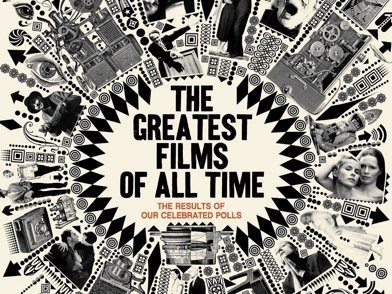
You’ll be aware that Sight & Sound magazine, a journal I do not hesitate to call “august”, polls critics, curators, academics and filmmakers every ten years to reach a learned consensus on the Greatest Films of All Time. And if you’re aware of that, you’ll also know that Citizen Kane was finally unseated in this year’s survey – the biggest ever, with 846 critics etc. polled – by Vertigo. The poll is designed to elicit debate and dialogue, so do not think it prescriptive. I personally like Kane, and appreciate its importance in the canon, but I rate Vertigo as my favourite Hitchcock, which is why I put it into my own Top 10.
I remain, I must admit, flattered and delighted to have been able to add my own voice to the 846 this decade, to have attained a foothold on the cliff face of critical consensus. I have been a Sight & Sound subscriber since the 90s who, up to now, has had his nose pressed up against the glass. So how did I manage to break through? What changed since 2002? Did the Film Editor of Radio Times suddenly become more critically legitimate? Nah. I’m candid enough to admit that I emailed the editor of the magazine and asked if I could contribute.
Hey, I’m not too proud to beg. Indeed, it is one of the basic home truths I always try to get across to students and anyone else who asks me for career advice: if you don’t ask, you don’t get. We’ll call it pester power. (It’s been established elsewhere that I asked if I could “have a go” at being a proper radio DJ when 6 Music was in its embryonic development stage, and this audacious request eventually landed me a day job at the launch of the network.) I’ve only ever written one piece for S&S, a labour of love feature about Gene Hackman, in 2005, and can you guess how I came to be commissioned to do that? Yes, by asking. Naturally, Nick, the editor, could have politely declined, and I would never have held it against him or the magazine, but I caught him at the right moment, and I achieved a long-held ambition.
So, yes, I asked if I could be asked what my Top 10 films were, and I just squeezed in as the portcullis was coming down, at the last moment. As a result of the rush, I had little time to pore over my choices, but for the record, these are they. (In the rules of the game, each choice gets the same point, so in a way, the qualitative order is for vanity only.)
APOCALYPSE NOW (Coppola, 1979)
THE GODFATHER PART II (Coppola, 1979)
RED RIVER (Hawks, Rossen, 1948)
ORDET (Dreyer, 1955)
BATTLESHIP POTEMKIN (Eisenstein, 1925)
VERTIGO (Hitchcock, 1958)
WINTER LIGHT (Bergman, 1972)
STARDUST MEMORIES (Allen, 1980)
RASHOMON (Kurosawa, 1950)
LAWRENCE OF ARABIA (Lean, 1962)
You can peruse and search and cross-reference the final results of the final poll here. You can also compare the 2012 Top 10 with those of previous years: 1952, 1962, 1972, 1982, 1992 (the first year a Directors’ Poll was included), and 2002. You can even search for every critic and point at their choices. Imagine if actual democracy was this transparent!
I am excited to know that I am “Voter 811“.
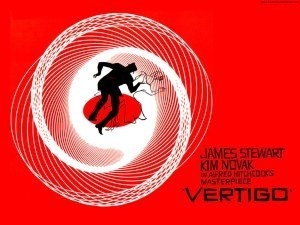
The reason I bring all this up again is partly because I was too busy, it seems, to blog about it when the results came out, and when the full thing went online. But it’s also because . It’s a great season, and tickets are only a fiver, so if you’re in what I call “town”, have a look at the season and the dates. I’m certainly tempted to get down to the South Bank, as – tell nobody! – there are a couple of silents on there that I’ve never actually seen.
Don’t feel that the S&S poll is all about intellectual oneupmanship. It isn’t. And nor is it only about silent films or Russian films or obscure films. There are plenty more recent films further down the list. Plus, it takes time for a new film to settle into “classic” status. And critics are obviously wary of anointing a picture too early in its life. Hey, 80 years down the line, it’s far easier to say that The Passion of Joan Of Arc is one of the greatest films ever made.
I’m all for extending the debate here, of course.


August 25, 2012
High visibility

My recurring joke about my role at this year’s Media Guardian Edinburgh International Television Festival is that I was basically a steward. Hosting five post-screening Q&As and one stand-alone “masterclass” (also in actual fact a Q&A), I felt I should by right have been given a high-viz jacket to wear, so that my stewarding was more clearly advertised. I’ve done quite a bit of hosting in my time, and I think I understand the job: it’s to make your guest or guests look good; it is to facilitate. (Clearly, if I was hosting a session with, say, Elisabeth Murdoch or a channel controller, I’d be under pressure to play a more journalistic card, but being the “face” of the Screenings Showcase for the last three days has been to act as a conduit for important information from important creative people.)
For the record, I will log the six sessions I hosted at MGEITF 2012, so that I can look back with fondness upon this blog in a year’s time, when I hope I’m back up on Lothian Road doing the same thing. On Thursday, after an hilarious cab mix-up (you don’t get paid to host events at the Festival, but you do get ferried around and put up in a hotel, and I guess the idea is, you use the opportunity to network and further your chance of future paid work on TV), I arrived at Edinburgh Napier University’s Merchiston campus where a cool outfit called The Network were laying on a feast of masterclasses for their lively media students. And then a suitably frazzled Charlie Brooker arrived, so that I could make him look good. (A cab had come to my hotel, the Apex, where Charlie was also staying, except it turned out that he was staying at another hotel called the Apex. There are four in Edinburgh, which rather undermines the concept of an apex. Anyway, due to this confusion, we were denied an in-car preamble in the cab, and had to hit the ground running.)
Oddly, he and I have only met once before, in 1999 we think, when he was working for a Radio 1 show about gadgets and games, and he interviewed me about a new-fangled craze called “email attachments” (my job was to “review” a selection of tiny films, see?) – quite how our paths have failed to cross since, I do not know. All things considered, we both felt like we knew each other better than we do, and it was bags of fun.


Thanks to Kirsten for these pics. Clips were played as you can see. It’s weird to be sitting with someone while their work is shown to an adoring audience. Before the end of the Festival, I would find myself sitting next to Steven Moffat while a whole episode of Doctor Who was played. (There are no pictures of this, as security was tighter at that session.)
No sooner had Charlie and I finished chatting about his life and works – during which he admitted to “hating” writing and that the engine which drives him to work so hard is guilt from ten years he spent doing very little and smoking dope after he’d left university without a degree – and taken questions from the audience as per convention, than we were ferried off in another cab – he to his hotel where he wife and baby awaited him; me to Edinburgh’s lovely Film House, whose threshold I have previously had cause to cross when I’ve been up for the Film Festival. It’s one of those cinemas that has a nice coffee bar and sells DVDs, but with a very nice, old-fashioned auditorium with a much bigger screen than most arthouses.
The Film House became my home, essentially, for the next two and a half days. My two producers, Fraser and Liz, plus PR Ian, and cinema liaison Evi, made this a very smooth experience. Technically, the mics were always in the right place, and working, and chairs and tables miraculous appeared after each screening, so all I had to do was mount the stage, greet the audience, tell them what they were about to see and who they were would see afterwards, watch the film, and then co-ordinate the Q&A, with furtive glances at either Fraser or Liz in the stalls to know when it was time to wrap up. Apparently, this time last year, many screenings were poorly attended. So this year, they got their act together, streamlined the programme of events and ensured that only screenings with “talent” attached would be included.
Because everything at the MGEITF takes place under one roof – that is, the roof of the Edinburgh International Conference Centre – and the screenings take place round the corner, a three-minute walk away, it was a case of constantly reminding delegates to pop over. Tickets went onsale to the public, and it was good to see a mix of both constituencies. It’s a big auditorium, so gaps were inevitable, but we had enough in each of the five events to make it worthwhile.
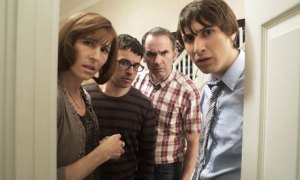
Screening one on Thursday was Friday Night Dinner, which returns soon for its second series on C4. I enjoy this show, and to say that series two is more of the same (I’ve seen the first two; the first was screened) is not faint praise. It’s supposed to be. I’d seen all the shows beforehand, on my laptop, but it was a different matter to see them on a big screen, and with an audience, especially when there was comedy to laugh at. They laughed at FND.
We had creator and writer Robert Popper, upon whose life it is based, plus stars Simon Bird and Tom Rosenthal, son of Jim Rosenthal, although it was his mum who was in the audience. (They have raised him well; he is a very well-mannered young man.) I mentioned Grandma’s House in a question about Jewish humour, and I felt that even the mention of its name rubbed the otherwise cheery Mr Popper up the wrong way, and he refuted my suggestion that it is Jewish humour. I left it. (We’re both British Library hermits, and have previously boned over this, although I wouldn’t say I know him.) Simon, who I’ve never met and who looks like he’s been in the gym, denied that there was a second Inbetweeners movie on the table, something missed by the international media.

With little time in which to relax and compose myself – which was a running theme – I turned my attention to the stars and execs of a new BBC3 comedy Some Girls, which they won’t want to be described as “the female Inbetweeners” and is written by Bernadette Davis, the woman behind Game On. Unfortunately Bernadette wasn’t on the panel, which is a shame as I always like to meet the writers.
However, she was overcompensated for by three execs: producer Gregor Sharp, controller for comedy commissioning Cheryl Taylor (recently promoted to controller of CBBC), and controller of BBC3 Zai Bennett. This was, they agreed, too many execs for one panel, and Cheryl opted out. We also had principal castmembers Mandeep Dhillon and Natasha Jones, who arrived with unnecessary efficiency approximate 90 minutes early, before the FND session, which they duly and enthusiastically attended, seeming more than happy just to be have been flown up to Edinburgh for the gig.
They are actually 21 and 19, not 16 like the characters they play, but Jonas has only previously been in Attack The Block, so refreshingly free from cynicism.
Some Girls is not aimed at me. And as a non-parent I admitted to its participants that I was shocked by the language and sexually frank material, but could see that I was supposed to be. It is a lively show, however, and I can see it working on BBC3. (The lineup was much more manageable with four, by the way, pretty much the optimum number. I once chaired a panel with the makers of Black Hawk Down for Bafta and I believe we had six, or even seven, and it was hard going keeping all of them in the mix.)
When I suggested to Zai that BBC3 was hitting a purple patch for comedy, with Him & Her, Pramface and Bad Education, and now Some Girls, it sounded like I was looking for work, but that’s a constant tightrope to walk when you’re there as a steward but are in fact a jobbing freelancer at the same time. (I’m not exactly an aggressive networker, but I did meet a nice man after one of the screenings who might, or might not, have offered me some work. I certainly gave him the name of my agent. I shall say no more, but if it does coalesce into a job, that will be one-nil to me.)

Friday started later, which was nice after Thursday’s relatively early start (I’d had to film Telly Addict at 10am and then rush back to the hotel), and I was looking forward to this one: just Victoria Wood, the TV equivalent of royalty, and on this occasion the writer and exec producer but not the star of another one-off film for BBC1: the excellent Loving Miss Hatto. When’s it on? Don’t ask. As with all of the shows we previewed – except Doctor Who – it does not yet have a “TX date” as we sexily say in TV. Victoria Wood would like it to be on at Christmas, but I guess the controller of BBC1 will be final arbiter.
Thanks to Jock’N'Roll for the two phone snaps. I’m glad to have even blurry evidence that I shared the stage with such a luminary. She wasn’t too impressed with the green room, which was an office upstairs at the cinema with some refreshments on a table and a toilet the staff warned me about, so we had our getting-to-know-you preamble downstairs in the cafe, which meant that sweet elderly people kept coming up to her, a fanbase she seems graciously happy to attract. (One couple had already asked me for my photo and autograph outside the Conference Centre because they avidly read the Radio Times, so that’s my entire crossover with Victoria Wood!)
You’d expect someone with decades of TV success behind her to be confident, but there is not a creative soul in the world who doesn’t need reminding that they are good at what they do, emotional fluffing, if you like. I was unable to stop myself telling Victoria Wood how good I think her writing is over a latte, so this was no hardship; whereas I love Aaron Sorkin’s dialogue because it’s beautifully crafted but sounds unlike the way people talk, I love Wood’s because it’s beautifully crafted but does sound like the way people talk. She has a way of leavening a sometimes heartbreaking scene with a throwaway remark that makes you smile, without it ruining the mood. That happens a lot in Hatto. I hope you can see it soon. It’s based on a 2007 article from the New Yorker, so you can see why it’s right up my alley.
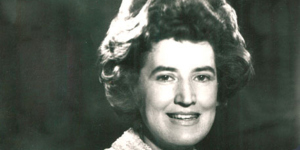
Miss Hatto – on the surface a biopic of a little-known English concert pianist, Joyce Hatto, but much more than that – is partly set in the 1950s, and you sense that Wood really relishes capturing the way we spoke then. (Her previous single-film triumph, ITV’s Bafta-winning Housewife, 49, was set in the 30s and 40s, and again, was written with a deep love for old-fashioned Lancashire speech patterns: “We’re all a bit funny with these hostilities.”)
May I call her Victoria? Victoria was on the back foot a little, as some aspects of Hatto’s amazing life story are not a matter of public record, so a certain amount of dramatic licence has been necessarily but sympathetically taken. She made plain that she has “imagined” a drama out of real events – and the names have not been changed – but because Hatto’s husband, Barry, is still alive, this makes such liberties tricky. I admire what she’s done, but a couple of the questions from the audience about this blurred line between fact and imagination felt almost accusatory, and a certain prickliness was the result. All round, a happy occasion. I would have loved talking to her about her entire career, but there wasn’t time.
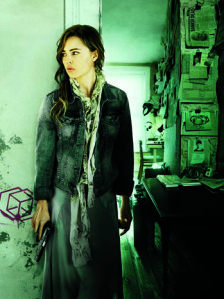
Again, with zero breathing space, I then switched gear to expensive HBO/BBC/Cinemax espionage action, for Hunted, whose pilot episode – due, possibly, to air on BBC1 in September, certainly trailed during the Olympics (“coming soon”) – is a cracker, suggesting a worthy replacement for Spooks, whose production company, Kudos, it shares. So I welcomed the “power trio” of creator/writer/showrunner Frank Spotnitz (big cheese from The X-Files), British producer Alison Jackson, and British director SJ Clarkson, none of whom seemed very impressed with my interest in the hoary old contest between US and UK drama (“Which is best?”), so I played that right down. You must adapt to survive in the stewardship game! Instead, I played up the co-production angle, and the Q&A became a celebration of hands-across-the-ocean cross-pollination. Phew.
Spotnitz was softly spoken and of few words, which is surprising for someone who writes, but he may have been jetlagged; however, in constantly and flatteringly deferring to Clarkson (a brilliant director whose CV straddles the Atlantic, taking in Doctors, Life On Mars, Dexter and House), he did us a favour, as her insights were really interesting. I asked her the difference between directing here and in the US, and she said, “Money.”

Thanks to Roland for the above pre-show pic.
Saturday was always going to provide a suitable climax to the festival, with just the one session: Steven Moffat. Perhaps unsurprisingly, it sold out within ten minutes of the tickets going on sale to the public. (One of those tickets was bought by Michael Legge.)
My only ever contact with Moffat was at this year’s Radio Times party, where I accosted him, tipsily, and told him how much I loved Sherlock, which I did. I’m sure he’s forgotten this, so it was nice to meet him again on a more even keel. (He had no problem with the green room.) As we broke the ice upstairs, and I tested out a couple of questions on him – this is a real luxury and helps your pre-match confidence – the auditorium downstairs filled with Whovians, some reportedly dressed in Tweed.

Having been granted special access to a top-level-clearance stream of Asylum of The Daleks – first episode of the seventh series of Doctor Who, Matt Smith’s and Moffat’s blockbuster third – I knew the fans were in for a treat, although in my intro I had to impress upon them the importance of not Tweeting about a certain element of the story before it airs on September 1, next Saturday. I made them promise. Steven reiterated this when he joined me.
I try not to fritter away the privilege of this job. Sitting next to Steven Moffat and watching Doctor Who and the Daleks on a cinema screen, while Who fans gasped and giggled in all the right places, gave me a proper thrill. It was illuminating to see how much joy this show brings to a certain constituency. Should I ever get blase about these moments, exterminate me. It was also thrilling to have a full house to finish off with. I handed over to the audience much sooner than is traditional, as I knew they’d have more pressing questions than mine. And they did. One tiny girl of about five had her hand up, and, with prompting from Mum, asked, “Do the Cybermen go rusty in the rain?” and it brought the house down. A magic moment. It threw Moffat, as he recalled writing an episode with a rusty one in.

It wasn’t all work, work, work, of course. (Mind you, nor was the work.) I ate at the pizza restaurant Mat Ricardo introduced me to in 2010, Mamma’s, on my own, which was pretty cool of me. I managed three comedy shows at the Fringe – Josie Long’s inspiring Romance And Adventure, Richard Herring’s filthy Talking Cock: The Second Coming, and Pappy’s career-best Last Show Ever! (two Foster’s Comedy Award nominees in there, although neither won) – and enjoyed pints in plastic glasses with pals Tony and Helen, and Tara and Carl, and Richard and Catie, and Michael, and Matt, in familiar drinking spots like the Pleasance Courtyard, the Pleasance Dome, Brooke’s and the Loft Bar, and an unfamiliar one, the Abattoir. (Bumped into old pal Alan Francis, too – he was on me and Stuart’s first ever radio show, Fantastic Voyage, in 1993.)
I also attended – get me – the annual Guardian dinner, at the invitation of editor Alan Rusbridger, where media movers and shakers and, it seems, me, sit around a banqueting table, eat, drink and, after the tapping of a wine glass, enjoy a heated debate, this year about YouTube versus traditional telly (the boss of YouTube was there). It was brilliant; bracing and entertaining, and a bit surreal for me; other guests included Michael Apted, Mark Lawson, ITV1 controller Peter Fincham, along with various big Guardian cheeses and media moguls. I have never met the ed before, as the Guardian is a huge place, and I work quite near to the tradesmen’s entrance, and I really must admit to being surprised at the invite. I hope this bodes well for Telly Addict.
A mad three days, marked by complementary coffee, the Full Scottish breakfast at my particular Apex, and a small, black rucksack full of Fringe flyers. Back to reality. Edinburgh remains, for me, my Second City. Within moments of pulling in to Waverly Station, I feel oddly at home there. I realise I’ve only ever been up at festival time, and that necessarily transforms it, but I love the stone and the buildings and the incline and the weather and the layout as much as I love thronging the streets at an unholy hour with hundreds of other visitors in kagoules, many of them with lanyards around their necks as if to prove that they are just passing through.
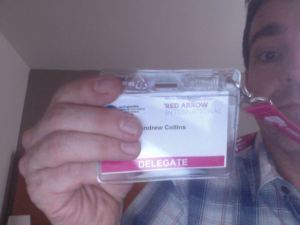
I like the television industry, too. But I value my outsider status. Don’t want to get to “in.” That way lies complacency, or worse, security. Although I’m quite getting into the TV industry uniform of jacket, shirt, jeans and sailing pumps.


A delegate situation
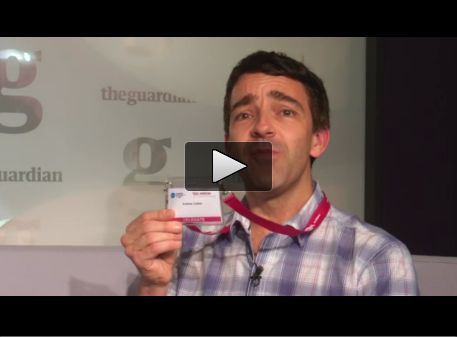 This week, I’m at the Media Guardian Edinburgh International TV Festival, or MGEITF as all the cool delegates know it. The bearing this has on Telly Addict is that, as you can see, I was filmed in the pop-up Guardian “pod” in the noisy lobby of the Edinburgh International Conference Centre, which was a novelty. (I’m up in Edinburgh to facilitate/host the preview screening/Q&A season at the city’s lovely Film House cinema, which is just far enough round the corner from where the bulk of the TV Fest action is, none of the exceptional work we have been doing there has been officially photographed, or reported upon in the newspapers, even though, for instance, Simon Bird confirmed that a second Inbetweeners movie has not been confirmed, in a Q&A about Friday Night Dinner – scoop!
This week, I’m at the Media Guardian Edinburgh International TV Festival, or MGEITF as all the cool delegates know it. The bearing this has on Telly Addict is that, as you can see, I was filmed in the pop-up Guardian “pod” in the noisy lobby of the Edinburgh International Conference Centre, which was a novelty. (I’m up in Edinburgh to facilitate/host the preview screening/Q&A season at the city’s lovely Film House cinema, which is just far enough round the corner from where the bulk of the TV Fest action is, none of the exceptional work we have been doing there has been officially photographed, or reported upon in the newspapers, even though, for instance, Simon Bird confirmed that a second Inbetweeners movie has not been confirmed, in a Q&A about Friday Night Dinner – scoop!
Anyway, in Telly Addict (see if you can hear TV people slurping free YouTube smoothies in the background), I’m reviewing The Great British Bake Off on BBC2, The Last Weekend on ITV1 and Red Or Black? on ITV1. It’s here.


August 21, 2012
A word about our sponsors

Well, it wasn’t mean to be this way. I Tweeted this morning in reaction to seeing the great Mo Farah clowning in a new Virgin Media ad in my newspaper beside Usain Bolt in stick-on Richard Branson beards. I felt, instinctively, without thinking very hard about it, that it was a shame that an athlete so beloved and lauded for his amazing achievements on the track at the Olympics should be seen mucking about in an advert for broadband inside of a fortnight after the Games ended.
It’s not easy to convey complex feelings in under 140 characters, but I had a crack at it, and, judging by the deluge of antipathy it generated, I can now confidently conclude that I did a bad job of conveying my feelings. I’m going to try here, where it’s safe and warm, and I can ramble, which I’m better at.
The facts first: the Farah/Bolt print ad is a new campaign, launched across a number of national newspapers at the weekend. Virgin Media has signed up the Somali-born long distance runner in an open-ended deal estimated to be worth £500,000. The campaign has been created by BBH. Jeff Dodds, executive director of brand and marketing communications at Virgin Media, said: “After delivering a stellar performance in the Olympic Games, Mo has found a special place in all of our hearts and is a fully fledged national hero. We’re absolutely delighted to be working with him. Virgin Media is all about delivering brilliant entertainment, and nobody has got the nation cheering at their TVs more than Mo over the last couple of weeks.”
Nobody’s arguing with that. I have almost no interest in watching athletics, as you know, but even I found myself drawn to the living room to watch Farah win the 5000m. You’d have needed a hard heart not to be drawn into the drama. He seems like a nice chap, too. Indeed, it’s the unifying and, yes, iconic power of Farah crossing that finishing line that’s worth preserving. To me, on a visceral level, the sight of him mucking about with a stick-on beard, so soon after his magnificent victory threatens to subtract from it.
Now, in saying this, I do not deny Mo Farah £500,000. As many people were quick to point out, indignantly, he’s got a family, and twins on the way, and he can now support them in a manner that surely befits the love felt for him around GB. But I never meant to criticise him for taking money from a sponsor. All sportspeople do it, seemingly at every level. And, as others pointed out, Farah’s window of opportunity closes very quickly. I’m sure it does. Virgin were very clever to sign him up after signing Bolt. They’ve now got two runners on their books, who, together, are surely worth more than they would be individually.
Unlike, say, Premiership football, which pays out large sums for most of the year to the biggest players at its biggest clubs, athletics is not a big-earning job, even though training is continuous between the big international meets, so the athletes must struggle to keep their dream alive. With this in mind, you’d have to be quite the idealist to suggest that Farah shouldn’t do whatever his sponsors ask him to. He seems like a laugh. He does that Mo-bot thing. I’m sure he’s totally fine with putting on a daft beard.
Dignity is subjective. Some people would do anything. Others would rather die than draw attention to themselves. Athletes compete in public, but this does not make them entertainers. I always feel sorry for them when a microphone is shoved in their face moments after finishing an event or game. It’s hard enough to articulate how you feel about winning or losing at the best of times, but when you are puffed out and rushing with conflicted emotions, it must be awful. But it’s part of the game.
I am an idealist. And it gets me into deep water. I seriously do not think Mo Farah should have told Jeff Dodds at Virgin Media, “Stick the false beard up your arse, contract or no contract!” It’s just a bit of fun, and if you take Virgin’s money, especially that much, then I’m afraid you work for them. I’m assuming Farah’s got a very good agent. I hope so.
To cite a really remote personal example: in the mid-90s, when I was the editor of Q magazine, Stuart Maconie and I had our photograph taken by ITV publicity to promote our film review show The Movie Club. We arrived at the photo studio to find racks of humorous, movie-related costumes. I took umbrage and had what must be one of five tantrums I have ever had in my professional life, refusing to wear any of the stupid wigs or costumes. I explained that I was, by day, the editor of a magazine, a job with a certain amount of responsibility, and that being photographed looking a dick would work against that. We found a compromise, and used some props, and it was all fine. But what I was trying to preserve was my dignity, I guess. Typically, only one shot from the session was ever used anywhere, in black and white. This is it.
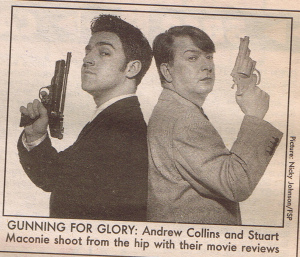
Dignity fluctuates according to circumstance. People become more protective of their dignity as they get older. Now, I think you will agree, a magazine editor having to put on a hat for a promotional photo shoot for which he will not be paid extra, and a world-class, Olympic gold-medalist having to put on a beard for a print ad for which he will be paid handsomely are worlds apart. But I was closet to being a nobody in the mid-90s; if anybody “owned” me it was Emap, who paid my salary for editing Q, and my duty was to them. Rightly or wrongly, but with the best intentions, I think the nation feels a certain “ownership” not of Mo Farah, but of the shared experience of those two unforgettable Saturday-night track victories. Jeff Dodds is right: the nation does have a special place in its collective heart for Mo Farah. My love of Mo Farah manifests itself in an idealistic wish that he could earn money, plenty more than he needs, by appearing in adverts that are in some way connected to his achievement.
Hey, I have no love for the corporate hegemony of the likes of Nike or Adidas, but at least sportspeople who appear in their adverts are selling sports equipment. Virgin Media are no more evil than any large company or brand, but the link to the “speed” of their broadband is tenuous, and as such, is not about Farah’s athletic achievement. So he has to wear a beard for a joke about Richard Branson. Just like Usain Bolt did. I just wish he’d been able to wait for - I don’t know – a couple more weeks? Maybe the public’s window of opportunity to savour the moment also closes. I’m discussing this with myself now, in many more than 140 characters.
Don’t be an idealist, kids. It makes you feel sad on a near daily basis, when things don’t go according to your insane plan. If I was in charge, I’d make sure that all sport, amateur and professional, was properly funded and rewarded, so that stars like Farah wouldn’t need to take the corporate shilling. Fortunately, I am not in charge. And the world is run by private companies, who call the shots.
I like the idea of the Olympics being a truly egalitarian contest. May the best man or woman win, and reap the applause. Mo Farah was the fastest at running 5000m. Imagine if, instead of part funding sport through the National Lottery, which remains a tax on those who can least afford it, we funded it by collecting fair taxes from everybody, including corporations and the super rich? This mad system could then be adopted by other nations and the Olympics would belong to all of us, and not to Samsung and McDonald’s and Visa. And athletes could get bonuses, from this publicly-funded pot, for each medal they win, and use that to support their families, and further their careers.
I also made a satirical remark about how we could make the rich Premiership footballers share some of their earnings with the impoverished athletes – I even mentioned my own idealism to underline the joke – and you wouldn’t believe how many people took offence and started to defend Premiership footballers against my despicable plan. It was a joke about socialism, which will never work, right?
Kill me now.


Andrew Collins's Blog
- Andrew Collins's profile
- 8 followers



